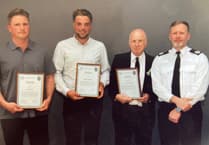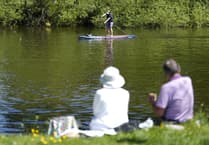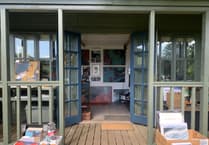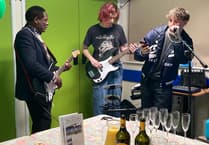GEORGE Best, who died last Friday aged 59, was a Liphook resident until a few months ago, living at Forest Mere health resort. Among friends of the legendary footballer, eager to pay tribute to his genius and lament the alcoholism that cut his career and his life short, is Stephen Purdew, managing director of Forest Mere. He was George's host for two years, after the break-up of Best's marriage to Alex. "George Best stayed at Champneys Forest Mere for two years and was a friend for more than 20 years - a friend in need. "Unfortunately his stay came with more and more problems and we had no alternative but to ask him to leave, which was very sad and we are very saddened by this loss." Sue Brice, a beauty therapist who worked at Forest Mere during Best's time there, and now works in Haslemere, described Best as a "warm and generous human being". She said: "He was a very nice, but very sad person. He always had a twinkle in his eye. He never lost his Irish charm. "With the staff, he was always cheerful and cracked jokes. He had a terrific sense of humour and openly discussed his marriage problems with the staff." "He was very low-key with other guests. He tried to keep himself to himself, but this rarely worked because he was always being recognised." "I was very upset when I heard he had died, but it was inevitable." George Best hit the headlines again in June after a high-profile argument with his then girlfriend, Ros Hollidge. Best is widely regarded as one of the greatest players in British and world football. In a glittering career with Manchester United, he won the First Division title in 1965 and 1967 and the European Cup in 1968. His role in the team's success was recognised when he was named the European Footballer of the Year in 1968. He made 466 appearances for the Old Trafford club, scoring a total of 178 goals. He also won 37 caps and scored nine goals for Northern Ireland. He is pictured (right) in Petersfield in October 2003, when he made an appearance to help raise funds for the charity Breakthrough Breast Cancer. He agreed to support the charity after being approached by organiser Jane Goodwin, who worked at Forest Mere while he was living there.



